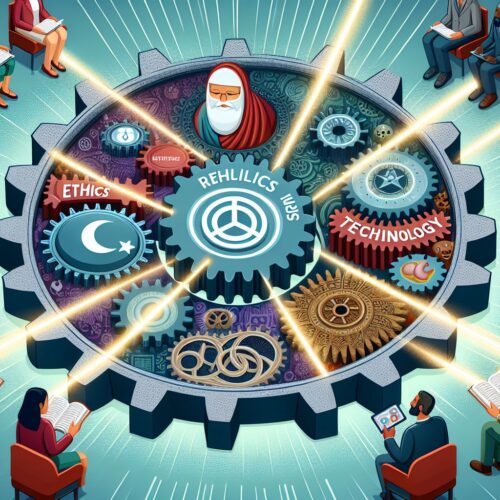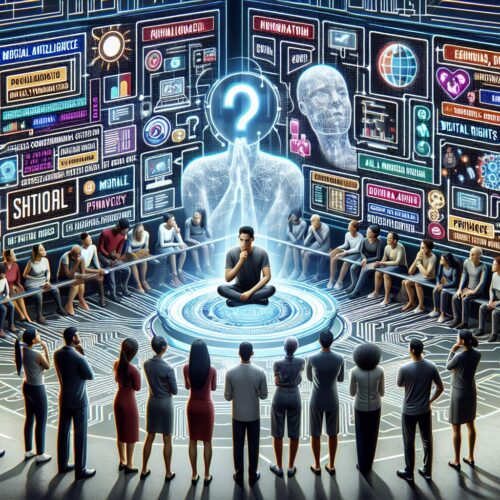As technology continues to advance at an unprecedented pace, ethical considerations have become paramount in navigating the intricate web of possibilities and challenges that emerge from these advancements. From artificial intelligence to genetic engineering, futuristic concepts that once seemed distant are now becoming our reality. However, as we explore the ethics of technology, we must not overlook the profound impact that religious influences can have in shaping the moral landscape of our technological future.
Religious beliefs and values provide a guiding framework for many individuals and societies, directing their perceptions of right and wrong. This profound influence is not limited to personal morality but often extends to political decision-making as well. In the realm of technology, where the boundaries between innovation and ethical dilemmas are blurred, understanding the interplay between religion and politics is crucial in ensuring a well-rounded ethical analysis.
One area where religious influences often intersect with technology is in the field of bioethics. Questions surrounding genetic engineering and gene editing have become more prominent, raising concerns over the manipulation of life itself. For many religious groups, the sanctity of life is a core tenet, and the alteration of human genetics can be interpreted as interfering with the natural order. Consequently, religious belief systems can shape political discourse, impacting legislation and regulation surrounding these technologies.
Similarly, the development and implementation of artificial intelligence (AI) pose challenging ethical questions that demand careful consideration. As AI becomes more pervasive in our daily lives, it is essential to navigate its potential societal ramifications, such as job displacement and privacy concerns. Here, religious influences can provide an alternative perspective on the value and dignity of human labor and the boundaries of personal privacy. These perspectives can shape discussions around AI regulations and policies, enriching the debate and fostering a more comprehensive approach to technology ethics.
Moreover, religious influences play a vital role in addressing questions of fairness and justice. Technological advancements, such as algorithms used in predictive policing or facial recognition software, can perpetuate biases and discrimination. Religious frameworks that prioritize justice and equality can challenge these biases, advocating for the development of transparent and accountable technologies that are in line with societal values.
Nevertheless, it is important to acknowledge that religious influences in the realm of technology ethics are not monolithic. Different religious traditions offer diverse perspectives, sometimes even conflicting with one another. The discussions surrounding issues like reproductive rights, stem cell research, or the use of AI in warfare highlight the varied interpretations within religious communities. Recognizing and engaging with this diversity is crucial for fostering inclusive and nuanced conversations that truly reflect the complex tapestry of religious influences on technology ethics.
In conclusion, the evolving ethical landscape of technology cannot be divorced from the profound impact of religious influences in politics. As we shape the future, engaging with diverse religious perspectives is essential for creating inclusive and comprehensive ethical frameworks. By examining the intersection of religious beliefs and technological advancements, we can foster enlightened discussions and reflections that strive for an ethically sound and responsible technological future. Only by navigating these uncharted waters with an open mind and an appreciation for religious viewpoints can we truly create a world where innovation is balanced with human values and societal well-being.

